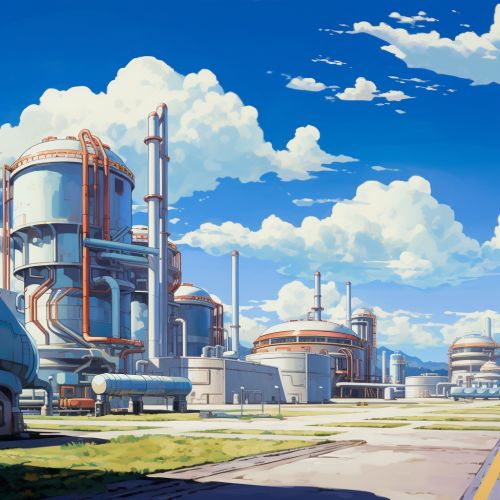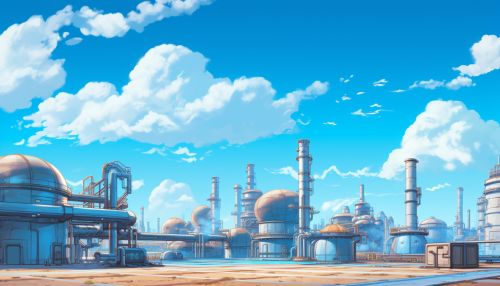Fast Neutron Reactor
Introduction
A Fast Neutron Reactor (FNR) is a type of nuclear reactor in which the fission chain reaction is sustained by fast neutrons. This contrasts with thermal neutron reactors, which rely on slow or "thermal" neutrons. Fast neutron reactors are capable of producing more plutonium than they consume, making them a key component of a potential closed nuclear fuel cycle.


Principles of Operation
Fast neutron reactors operate on the principle of fast neutron fission. Unlike thermal neutron reactors, which slow down neutrons to increase the likelihood of fission, fast neutron reactors allow neutrons to maintain their high kinetic energy. This results in a higher fission cross-section for certain isotopes, leading to a greater yield of energy and the production of more fissionable material.
Design and Construction
The design and construction of a fast neutron reactor are significantly more complex than those of a thermal neutron reactor. The core of a fast neutron reactor is typically composed of a nuclear fuel such as plutonium-239, surrounded by a blanket of fertile material such as uranium-238. The core is then surrounded by a neutron reflector to prevent the loss of neutrons and increase the efficiency of the reactor.
Types of Fast Neutron Reactors
There are several types of fast neutron reactors, including liquid metal fast breeder reactors (LMFBRs), gas-cooled fast reactors (GCFRs), and lead-cooled fast reactors (LFRs). Each of these types has its own advantages and disadvantages, and the choice of reactor type depends on a variety of factors, including the intended use of the reactor, the available resources, and the regulatory environment.
Applications
Fast neutron reactors have a number of potential applications. They can be used for power generation, for the production of radioisotopes for medical and industrial use, and for the transmutation of nuclear waste. Fast neutron reactors can also be used in a closed nuclear fuel cycle, where the plutonium produced by the reactor is reprocessed and used as fuel, reducing the amount of nuclear waste produced.
Safety and Regulation
The safety and regulation of fast neutron reactors are critical issues. Due to the high energy of the neutrons involved, fast neutron reactors can pose a greater risk of radiation damage to materials and components than thermal neutron reactors. They also require more stringent safety measures and regulatory oversight.
Future Developments
There is ongoing research and development in the field of fast neutron reactors, with the aim of improving their efficiency, safety, and sustainability. This includes the development of new materials and technologies, as well as the exploration of alternative fuel cycles.
